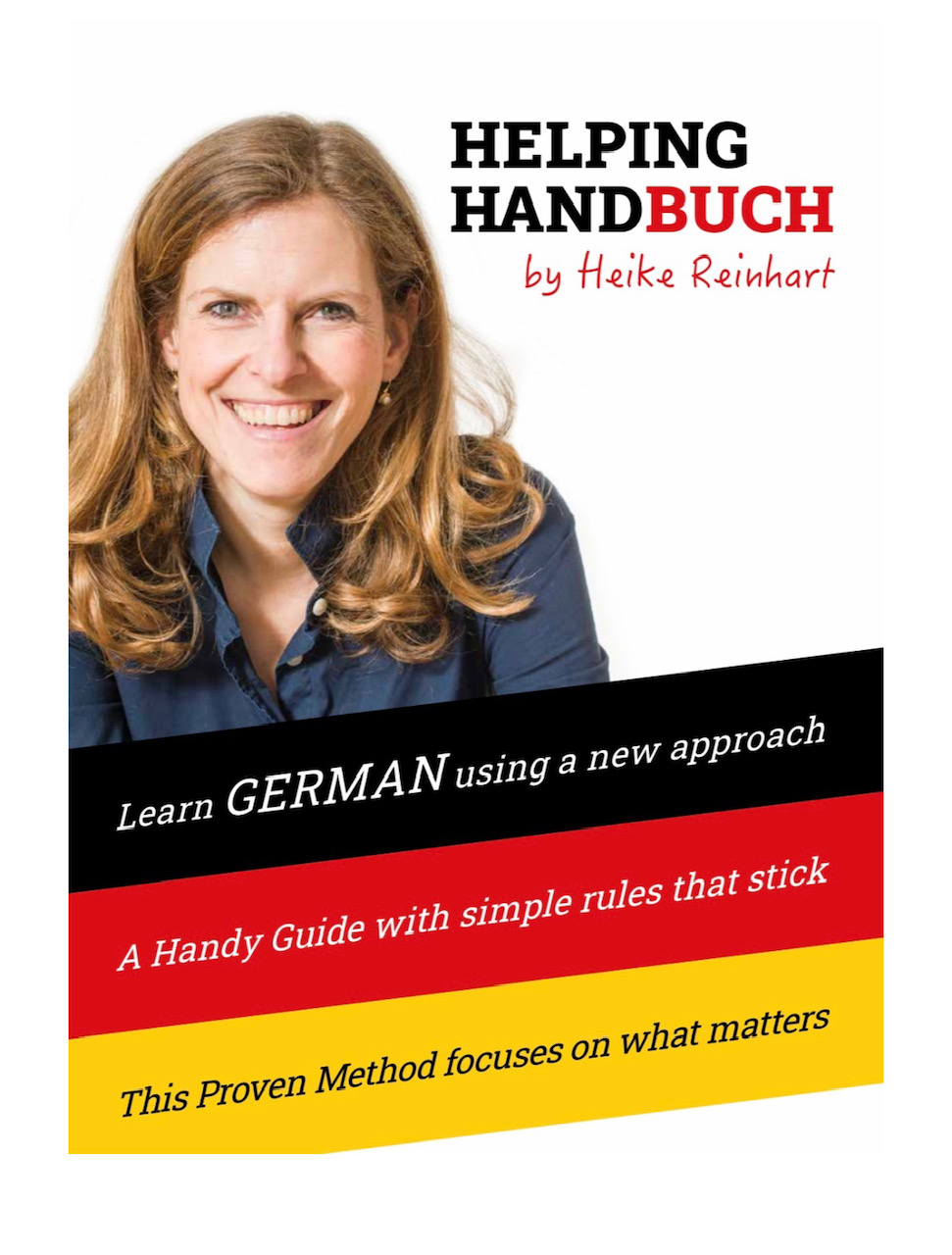Expat Spouse Career Program HireMeExpress – From Frustrated to Fantastic in 90 Days in Zurich, Switzerland

Book a meeting with Angie Weinberger to see if you are a good fit for the program: https://calendly.com/angieweinberger.
What’s in the Program?

Bonuses
These bonuses help you generate unstoppable momentum (and keep it) until you sign that contract or first client.
- Individual collaboration sheets so you can directly connect to at least ten contacts in our network.
- Online support is available through our team from Monday to Friday via our RockMeApp.
Email angela@globalpeopletransitions.com to be added to our waiting list.
Frequently Asked Questions about our Program for the Expat Spouse HireMeExpress
Do I have to be in Switzerland to participate in HireMeExpress?
You don’t have to live in Switzerland before you can benefit from this program’s value. If you plan to move to Switzerland, an ideal time to start this program is about six months before moving. However, it would be best if you had a work permit through your spouse’s employer. Contact us if you are not sure about the permit types.
Can I participate in the program?
Anyone looking for a means of earning income is suitable for the program. However, it is geared towards those who feel they have a more challenging time finding a job in the host country because of a lack of network and visibility. Everyone has different challenges. We noticed that female expats and rainbow talent often have a more challenging time in countries like Switzerland. If you are unsure, you can always call us for a meeting.
Do you guarantee I will get a job during the Expat Spouse Career Program HireMeExpress Zurich?
We can guarantee that our method and process are proven. However, committing to getting the most out of HireMeExpress would be best.
Can my Partner and I participate in the program?
Usually, it’s better if your partner focuses on their role and if they let you do the work required. However, we can discuss your situation in a call.
What if I feel I’m not a good fit for the program after buying?
If you buy the program, go through modules 1 and 2, and feel that you are not a good fit, we will refund your course cost if you show me that you’ve done the required work.
Why is the course price higher than an average online course?
This is because it is a hybrid course (blended learning) in which you regularly have live individual coaching sessions and group coaching sessions. We offer the course at a market-level rate, and it’s the same price for companies and organizations wishing to support better their expat spouses who are moving to Zurich, Switzerland.
Do I need a work permit from the host country to participate in HireMeExpress?
Yes, it is highly recommended that you only join this course if you have a work permit for Switzerland. If you don’t have a work permit, we recommend individual coaching sessions and a consultation with an immigration specialist. We can connect you with them.
Do I need to speak German or Swiss German, or is English sufficient to find a job or an income in Zurich?
This is a role-specific question that I can only answer in the context of your role. However, many of our previous coaching clients do not speak German or Swiss German and are mainly fluent English speakers.
Which key success factors have previous participants highlighted?
They are accountable to a coach and a group and have concrete pointers to start their networking efforts. Another key success factor is the highly interactive work in the group and the strong personal commitment that we bring to the table for every single client.
Still thinking about our Program for the Expat Spouse HireMeExpress?
You should give HireMeExpress a 14-day risk-free shot if motivated by the following.
- You are worried you might not find a challenging and purposeful job in your host country.
- You underestimated the challenge of working in a language that is not your mother tongue.
- You might have thought it would be easier to get online work opportunities in this day and age.
- You are looking for purpose and fulfillment.
- You did not expect that cultural adjustment would hit you that hard, and putting on weight, eating more, and drinking more alcohol doesn’t make you more attractive at this point in your life.
- You are convinced, though, that once you have a clear day structure again, you can battle these signs of cultural adjustment and get back into shape.
- You are motivated by the energy you will have once you have started your work routine again.
Most importantly, you are motivated by having a good life in the new country with your partner. Your relationship will be more harmonious, and you will feel that you are building a life vision together again. That’s why you are motivated beyond measure to invest the next few months in getting fit for this job market and learning the host country’s language simultaneously.
Email angela@globalpeopletransitions.com to be added to our waiting list. Book an appointment with
Angie Weinberger if you still have doubts about the program. https://calendly.com/angieweinberger.
Guarantee
This is an intensive digital course for Expats and Expat Partners of all colors, genders, and orientations. To a certain extent, this course will also help migrants and refugees. We welcome you to chat with us so we can see if you are a good fit for our program. If you buy the program and you are going through module 1 and module 2 and you feel that you are not a good fit, we will refund your course cost if you show me that you’ve done the work required.
Our General Terms and Conditions for Executive Coaching Clients apply.

Content of the Program
HireMeExpress is a coaching program that assists expat spouses in entering the job market in Switzerland and Liechtenstein. With over ten years of successful operation, we have helped numerous clients secure employment and continue to provide comprehensive support to individuals seeking to establish their careers in the region. We work intensively with expat spouses to help them develop the following skills with a particular focus on the Swiss and Liechtenstein job market, ideally with a focus on German-speaking cantons.
- Planning your job search and finding your top 20 companies
- Building and maintaining a professional network in Switzerland
- Refining your brand
- Improving and having a professional presence online (LinkedIn)
- Writing effective Letters of Motivation
- Pitching in Elevators
- Learning the art of storytelling in interviews
- Improving business stories
- Deepen an understanding of personal values
- Improving executive presence in interviews
- Setting weekly targets at a healthy, realistic pace
- Styling job applications to Swiss recruitment practices
- Reviewing of offer letters and benefits
The program follows Angie Weinberger’s Global Career Workbook and has been updated repeatedly. You might want to buy the book before committing.
Help Your Spouse Adjust to the Host Country – Five Key Principles
Help Your Spouse Adjust to the Host Country – Five Key Principles
Benefits of Spouse or “Plus One” – Communities in Global Mobility
Benefits of Spouse or “Plus One” – Communities in Global Mobility
Eight Major Barriers to Expat Spouse Employment
Help Your Spouse Adjust to the Host Country – Five Key Principles

Going on an international assignment is often a relationship challenge. Even if you have already been married for a long time, moving abroad can bring out the best and worst in the relationship with your spouse and/or life partner.
Gone are the days of the “expat wife” sitting in the expat country club, playing tennis or painting her fingernails at the pool while an armada of the staff was taking care of the driving, children, household, and cooking. Today, life partners and spouses are of all backgrounds and all colors.
My observation is that more and more male spouses are joining female expats. We also see more same-sex couples doing assignments together. Some couples plan to have a family while on assignment, while others have children living at boarding schools in different countries. My advice here is mainly for dual-career couples. If you have children, you might face other challenges, but usually, companies provide more support around finding schooling than help with spouse adjustment.
Here are five principles you can use to help your spouse adjust to the host country faster.
1) Ensure you understand all legal obligations when applying for a residence and work permit
Ensure you understand the legal obligations in case you are not legally married. Is your life partner allowed to reside in the country? How hard or easy is it to receive a work permit? Did you consider adequate health, accident, and life insurance coverage? Work permit legislation can be tricky, even for married couples. Ensure you understand the implications of your work permit type for your spouse/life partner.
2) Help your spouse adjust by building your network in the host country
Find out how to build a network in the host location quickly. Normally, the easiest way to find a job in any area is through your professional network. Support and encourage your spouse to find a job or start a business and back off when they get started. Try not to pressure but to encourage and support. Let them speak to agencies and headhunters about job opportunities. Make sure they understand the role of agencies and headhunters in the process before you contact them. Help other colleagues and their spouses, too, so that you will be considered when it is your spouse’s turn to look for a job.
Talk to me
https://calendly.com/angieweinberger

3) Your spouse adjusts better through intercultural training
Understand the cultural differences in how to write an application and how a resume typically looks for the host country. What are the usual ways of getting a job? How critical are personal introductions? Who should sponsor your spouse? Having a social life and making friends together will help you transition into the new culture. Try to make time for events so that your spouse feels that you are on this adventure together.
4) Utilize support offered by your company.
Utilize all your company’s resources. Ask your employer for spouse career support. The transition into a new country is stressful. Sitting at home without a real task can trigger depression or loneliness. Your HR and Recruiting contact often might not understand what your spouse is going through. Show them data and articles to make sure they understand their plight. Before signing your new contract, let them know how important your marriage is to you and that you are not willing to sacrifice your personal life for the job.

5) Discuss a fallback option with your spouse.
If your spouse cannot find a job in the host location, devise a fallback option and value work even if it does not generate family income. Examples include volunteer work, social engagement, university degree, freelance work, or building up a company. Sometimes, expatriates are so busy starting a new job and life that they forget to listen and support their partners. Supporting your partner by having their back (not by breathing down their neck) might be more important than anything else. I have seen couples who agree that they take turns in advancing their career. After this assignment, your spouse should be able to pick the next role or location first.
A couple must live together (or close to each other) during an international assignment or at least see the light at the end of the tunnel (a maximum of two years of separated lives). Commuting creates separation, and your life will diverge. Also, consider that even though your career step might be important, it does not mean your life. So, occasionally, you might be better off turning down an international assignment to save the relationship.
Talk to me
https://calendly.com/angieweinberger
Shattering Glass Ceilings: The Rise of Women in Global Mobility

Shattering Glass Ceilings: The Rise of Women in Global Mobility
In a world where boundaries are being shattered and opportunities are becoming more inclusive, women are breaking free from the constraints of traditional gender roles and making their mark in every field. The global mobility landscape, once dominated by men, is now witnessing a seismic shift as women rise to the forefront. From corporate executives to entrepreneurs, from expatriates to digital nomads, women are taking charge and redefining what it means to succeed in a globalized world. This empowering trend is not only reshaping the workforce but also challenging societal norms and inspiring future generations. In this article, we will explore the reasons behind the rise of women in the global mobility landscape, the challenges they face, and the incredible achievements they have made. Join us as we celebrate the triumphs of these trailblazing women who are shattering glass ceilings and paving the way for a more inclusive and diverse world.
The Historical Gender Gap in Global Mobility
For centuries, women have faced numerous challenges when it comes to mobility and pursuing global opportunities. Historically, societal norms and gender biases have limited women’s access to education, career opportunities, and international experiences. This has resulted in a significant gender gap in global mobility, with men dominating the industry. However, as societies become more aware of the importance of gender equality and inclusivity, the landscape is slowly changing.
Today, more women are pursuing education and career opportunities that enable them to work and live abroad. This shift is not only due to changing societal attitudes but also the result of various factors that have contributed to the rise of women in the global mobility landscape.
Factors Contributing to the Rise of Women in Global Mobility
Several factors have played a crucial role in empowering women and enabling their rise in the global mobility landscape. One of the primary factors is the advancement of technology and the rise of remote work. With the advent of digitalization, more jobs can now be performed from anywhere in the world, providing women with the flexibility to pursue international opportunities without sacrificing their personal or family lives.
Another factor is the increasing focus on diversity and inclusion in organizations. Companies are recognizing the importance of having a diverse workforce that reflects the global markets they serve. As a result, they are actively seeking to hire women and provide them with the necessary support and resources to succeed in their global mobility careers.
Additionally, women’s empowerment movements and advocacy groups have played a significant role in raising awareness about the importance of gender equality in the workplace. These movements have not only challenged societal norms but also inspired women to break free from traditional gender roles and pursue their dreams on a global scale.
Success Stories of Women Breaking the Glass Ceiling in the Industry
The rise of women in the global mobility landscape is not just a theoretical concept but a reality that is being witnessed across various industries. From tech startups to multinational corporations, women are taking on leadership roles and making significant contributions. Let’s explore some inspiring success stories of women who have shattered glass ceilings in the industry.
One such success story is that of Sarah Johnson, a corporate executive who has successfully led global teams in the technology sector. Despite facing initial skepticism and gender biases, Sarah’s determination and expertise have earned her the respect and admiration of her peers. Today, she serves as a role model for aspiring women in the industry, proving that gender is not a barrier to success in the global mobility landscape.
Another inspiring example is Anna Rodriguez, an entrepreneur who founded her own international consulting firm. Anna’s passion for cultural exchange and her ability to navigate different markets have enabled her to build a successful business that helps companies expand globally. Her story showcases the entrepreneurial spirit and resilience of women in the global mobility landscape.
The Benefits of Diversity and Inclusion in the Global Mobility Sector
The rise of women in the global mobility landscape is not just a matter of gender equality; it also brings significant benefits to organizations and the industry as a whole. Research has shown that diverse teams outperform homogenous teams in terms of innovation, problem-solving, and financial performance. By embracing diversity and inclusion, organizations can tap into a wider range of perspectives and experiences, leading to enhanced creativity and better decision-making.
Moreover, having a diverse workforce that reflects the global markets can help companies better understand and connect with their customers. Women bring unique insights and perspectives that can contribute to the development of products and services that cater to a diverse range of needs and preferences. In a globalized world where cultural intelligence is crucial, having women in leadership positions is essential for organizations to thrive.
Challenges and Barriers Faced by Women in the Industry
While the rise of women in the global mobility landscape is undoubtedly a positive trend, it is not without its challenges. Women continue to face various barriers that hinder their progress and limit their opportunities for growth. One of the main challenges is the persistence of gender biases and stereotypes that undermine women’s capabilities and contributions.
Additionally, work-life balance remains a significant challenge for women in the industry. Balancing professional responsibilities with personal and family commitments can be particularly challenging when working in a global context that often requires frequent travel and long hours. Organizations need to implement policies and practices that support work-life integration and provide the necessary support systems for women to thrive.
Strategies and Initiatives to Support Women in Their Global Mobility Careers
To address the challenges faced by women in the global mobility landscape, various strategies and initiatives have been implemented to support their career development and advancement. Mentoring programs, for example, pair experienced professionals with aspiring women to provide guidance, support, and career advice. These programs can help women navigate the industry, build their networks, and gain the necessary skills and knowledge to succeed.
Another strategy is the establishment of women’s networks and affinity groups within organizations. These networks provide a supportive community where women can share experiences, learn from one another, and advocate for gender equality. They also serve as platforms for networking, mentorship, and professional development opportunities.
Additionally, organizations can implement flexible work arrangements and policies that promote work-life balance. This includes offering remote work options, flexible hours, and childcare support. By providing these resources, organizations can create an inclusive and supportive environment that enables women to thrive in their global mobility careers.
The Role of Mentorship and Networking in Empowering Women in the Industry
Mentorship and networking play a crucial role in empowering women in the global mobility landscape. Mentors can provide guidance, support, and advice based on their own experiences, helping women navigate the industry and overcome challenges. They can also serve as advocates and sponsors, opening doors and creating opportunities for their mentees.
Networking, on the other hand, enables women to expand their professional circles, build relationships, and access new opportunities. By connecting with like-minded professionals, women can learn from their peers, share experiences, and gain valuable insights into different aspects of the industry. Networking events, conferences, and online communities are excellent platforms for women to connect and collaborate with others in the global mobility sector.
Future Trends and Opportunities for Women in the Global Mobility Landscape
The future looks promising for women in the global mobility landscape. As organizations continue to recognize the value of diversity and inclusion, more opportunities are emerging for women to take on leadership roles and make an impact. The rise of remote work and digital nomadism also opens up new possibilities for women to pursue global opportunities while maintaining a flexible lifestyle.
Furthermore, the increasing focus on sustainability and social responsibility presents opportunities for women to contribute to the development of sustainable global mobility solutions. From advocating for environmentally friendly transportation to promoting fair and ethical labor practices, women can play a significant role in shaping the future of the industry.
Conclusion and Call to Action for a More Inclusive Industry
The rise of women in the global mobility landscape is a testament to the power of determination, resilience, and the potential within each individual. As we celebrate the achievements of these trailblazing women, it is crucial to recognize that there is still work to be done to create a truly inclusive and diverse industry. Organizations, policymakers, and individuals must continue to advocate for gender equality, challenge biases and stereotypes, and create supportive environments that enable women to thrive.
By embracing diversity and inclusion, the global mobility sector can tap into the full potential of its workforce, drive innovation, and create a more equitable and sustainable future. Let us continue to support and empower women in their global mobility careers, shattering glass ceilings, and paving the way for a more inclusive and diverse world.
Please read our series on Rainbow Talent too.
Empowering Expat Spouses in Their Career Journey
Unlocking Expat Spouse Opportunities: Empowering Expat Spouses in Their Career Journey
Dear Expat Spouses,
We thought we should pull together the main reasons, according to our experience that hinder your employment in the host country. This is a non-scientific analysis based on opinions and experience. There are a number of studies (Permits Foundation, 2012; Silberbauer, 2015) dedicated to the topic. Global Mobility providers and academics often research how family impacts “expatriate failure”. In my view, this is not enough. There is a need for us to investigate how we can bring down the barriers pertaining to your need for employment as an expat spouse. Why is it so difficult for you as Expat Spouses to find work in the host country? Here is a short analysis of the underlying issues which let us explore why venturing into an international assignment can be an exhilarating adventure, but it often presents unique challenges, especially for expat spouses seeking employment in a new country. This comprehensive guide aims to illuminate the eight significant hurdles that expat spouses may face and provide practical tips on how to surmount them. Our mission is to inspire optimism, offering actionable insights to empower expat spouses as they navigate this exciting but often challenging path.
1 – Conquering Work Permit Restrictions
Finding a job outside of one’s home country is not just as straightforward for many of my clients as it is in their home countries. Even if most top host locations allow you to work on the partner’s dependent work permit, other countries present significant restrictions to your employment. In fact, while some of them do not issue work permits to any Expat Spouses at all, others may present subtleties linked to marital status or they might not recognize same-sex marriages. How best then does one overcome this?
Challenge: You may encounter work permit restrictions that vary from country to country, with some nations imposing stringent rules based on marital status or same-sex marriages.
Tip: You can start by researching your host country’s work permit regulations before you plan to relocate. You and your partner can seek out employers who actively support spouse work permits, and don’t hesitate to consult legal experts when needed. We’ll guide you through this bureaucratic maze.
2- Mastering the Host Language
Despite the fact that the expat might work for a global company, most jobs in the host country will require host language skills unless you happen to move from the UK to the USA, you often will not have the language skills required to work in the host country. It’s important that you don’t underestimate this aspect and that you start learning the local language as soon as possible, ideally before relocating. The good news is that almost two-thirds of employers already provide this as the main form of assistance (Permits Foundation, 2012). If there is a business need, companies generally pay for a 60-hour course also for their Expat spouse’s classes However, 60 hours is not a lot and for working in another language a basic course will not be sufficient. There are specific job search engines that filter for English-speaking roles. If you are looking to find employment in the Swiss job market, you can look up www.englishforum.ch.
Challenge: Many positions in the host country necessitate fluency in the local language, which may be a daunting task for expat spouses.
Tip: Embark on your language-learning journey before moving, and make the most of language courses offered by your employer or local institutions. We’ll show you how to immerse yourself in the culture, fast-tracking your language skills.
3 – Navigate the Recognition of University Degrees in Regulated Fields and Non-Regulated Fields
While within the EU we can assume that university degrees will be recognized due to the common job market, a Brazilian doctor cannot work in a hospital in Switzerland. We call this a “regulated profession”. In the best-case scenario, you will need to go through a considerable amount of bureaucracy to get your degree converted, and this may cost you a good amount of money. In the worst-case scenario, however, if you want to keep practicing your profession, you will have to get complementary certificates in the host country. Even in non-regulated fields and jobs, it seems very hard to translate degrees and determine equivalency. Very often you need to explain what your degree and experience mean in “lay terms.”
Challenge: In regulated professions, your academic degrees might not receive immediate recognition, leading to bureaucratic hurdles and added expenses.
Tip: Explore degree recognition processes in advance and be open to obtaining supplementary certifications. We’ll connect you with local experts to streamline this process, ensuring your qualifications shine.
4 – Build Your Professional Network
Another issue is the lack of a professional network, which gives access to the untapped and informal labor market in the host country. Often you can only join professional associations when you are in a corporate role or when you have graduated in the country. Building your professional network in your host country will require time and trust. You will have to start from scratch and dedicate a considerable amount of time to this activity if you want to see good results. You will also need to understand that matters of trust and relationships are culturally different, so it’s important that you act in a culturally appropriate manner when attempting to expand your professional network.
Challenge: Establishing a professional network in a foreign land can be intimidating, yet it’s essential for career growth.
Tip: Invest time in networking, attend industry events, and leverage online platforms to connect with professionals in your field. Join local associations and expat communities to expand your circle.
5 – Evolve and Challenge the Global Mobility Policy
Only very forward-thinking global mobility and global recruiting policies address the need for support for “trailing” dual career partners. While ten years ago dual-career issues on international assignments were solved by sticking to classical Western nuclear “family” models, we now want to adhere to the needs of dual careers, patchwork families, Eastern “family” models, same-sex partners, and unmarried de-facto relationships. Visionary Global Mobility policies address various support models ranging from providing a lump sum to spousal career coaching. As an intercultural career advisor, I also work with clients who decide to start a global, transferable business so that they can follow their life partner to other locations and become location-independent. Thanks to technology I can support clients in NYC as well as in Mumbai. We also support candidates to improve their personal branding in the host market, learn to network effectively, and improve their interview skills and online presentations. But it’s crucial that Global Mobility Leaders update their policies and promote spouse support services rather than pay lump sums.
Challenge: Not all companies offer comprehensive policies to support expat spouses in their career endeavors.
Tip: Champion enhanced policies within your organization. Advocate for spousal career coaching and support services, collaborating closely with HR to ensure your needs are met.
6 – Combat the Intercultural Bias of Our Recruiters
Our recruiters often do not understand intercultural differences. Recruiters often don’t understand resumes from other countries and outsourcing talent specialists to HR-shared service centers has not improved the chances of “foreign” candidates in the recruitment process. Most selection methods and assessments are culturally biased. For example, in Switzerland, psychometric testing and other assessments of candidates are used to assess candidates next to interviews. Riedel (2015) shows examples where highly skilled candidates from China fell through the assessment roster in a German company because of their indirect communication style. Companies should provide training on Inclusion and Diversity in an attempt to eliminate unconscious biases and ensure all worthy candidates are being considered for global mobility. This practice is not yet spread. According to KPMG, 39% of employees surveyed aren’t aware of inclusive leadership training within their organizations.
Challenge: Recruiters may not fully grasp intercultural nuances, leading to biases in candidate selection.
Tip: Encourage companies to provide inclusion and diversity training for recruiters. Share your unique experiences to help educate them on diverse perspectives.
7 – Support more Research to Measure the Impact of Dual-Career Programs
In 2010 when I was still working at PwC we launched a project together with ETH to support more expat partners in Zurich. ETH Zurich conducted extensive research with several European universities on barriers to dual careers within the EU and EFTA countries. For most companies (NetExpat & EY, 2018; Atlas World Group, 2019), the presence of dual-career couples negatively affects the decision to relocate. There’s more: the spouse’s unwillingness to move because of his or her career is the first reason for turning down relocation.
And this indicates an increase in the number of households relying on two salaries, which should not surprise us. While in the past, small firms were relatively less affected by spouse/partner’s employment than medium and big firms, in more recent times, the impact has been similar across company sizes. There is evidently still a lot to do in order to integrate the needs of dual-career couples in the expatriation process. If you want to keep pace with reality and stand out with a far-reaching Global Mobility policy, please keep this issue a top priority.
Challenge: Dual-career couples’ needs may not always be integrated into expatriation processes.
Tip: Advocate for policies that prioritize dual-career couples’ needs, collaborating with like-minded individuals to drive change within organizations.
Expat spouse employment challenges are real, but they can be overcome with a proactive approach and a positive mindset. By advocating for change within organizations, seeking language skills, and actively networking, expat spouses can enhance their career prospects in the host country. Remember, you are not alone on this journey, and there are abundant resources and support available to help you thrive in your international adventure. On the receiving end, I can report that more and more expat spouses are male. There is hope. If you want to see how all these work in practice and would like to receive a proposal from us, please drop a line to Angie Weinberger (angela@globalpeopletransitions.com). I am happy to support you!
References:
Atlas World Group. (2019). 52nd Annual Atlas Corporate Relocation Survey. https://www.atlasvanlines.com/AtlasVanLines/media/Corporate-Relo-Survey/PDFs/2019survey.pdf
KPMG. (2018). Inclusion and Diversity: How Global Mobility Can Help Move the Needle. KPMG International. https://assets.kpmg//content/dam/kpmg/xx/pdf/2018/06/global-mobility-inclusion-and-diversity-how-gms-can-help-move-the-needle-FINAL.pd
NetExpat & EY. (2018). Relocating Partner Survey Report. https://www.ey.com/Publication/vwLUAssets/ey-2018-relocating-partner-survey-final-report/$File/ey-2018-relocating-partner-survey-final-report.pdf
Permits Foundation. (2012). International Mobility and Dual-Career Survey of International Employers. https://www.permitsfoundation.com/wp-content/uploads/2013/06/Permits+Global+Survey+2012nw.pdf
PwC. (2016). Women of the world: Aligning gender diversity and international mobility in financial services. PwC. https://www.pwc.com/gx/en/industries/financial-services/assets/women-of-the-world.pdf
Riedel, Tim (2015): “Internationale Personalauswahl”, Vandenhoeck & Ruprecht, Gottingen.
Silberbauer, K. (2015). Benefits of dual-career support for expat spouses, International Journal of Business and Management, vol 3, no. 2. DOI: 10.20472/BM.2015.3.2.005.
Weinberger, A. (2019). “The Global Mobility Workbook”, Global People Transitions, Zurich.
Weinberger, A. (2016). “The Global Career Workbook”, Global People Transitions, Zurich.
Resources for Expats and their Spouses
Eight Major Barriers to Expat Spouse Employment
Expat Spouse Employment | Global People Transitions |
Why Building Professional Relationships Is Harder for You
Why Building Professional Relationships is Harder for You
Benefits of Spouse or “Plus-One” Communities in Global Mobility
https://globalpeopletransitions.com/benefits-of-spouse-or-plus-one-communities-in-global-mobility/
How to get a Swiss recruiter’s attention through engaging cover letters:
How to get a Swiss recruiter’s attention through engaging cover letters – Global People Transitions
How to Help Your Spouse Adjusting to the Host Country – Five Principles:
How to Help Your Spouse Adjusting to the Host Country – Five Principles – Global People Transitions
The Swiss Recruiting Summer Slump – Six Tactics to Make More of the Downtime:
The Swiss Recruiting Summer Slump – Six Tactics to Make More of the Downtime – Global People Transitions
Why Culture Shock Is Different Than Depression:
Why Culture Shock Is Different Than Depression – Global People Transitions
Get Organized to Reach the Peace of Mind You Need to Focus on What Matters:
Get Organized to Reach the Peace of Mind You Need to Focus on What Matters – Global People Transitions
The Social Media Newbie Series – Part 1:
The Social Media Newbie Series – Part 1 – Get Started on LinkedIn
The Social Media Newbie Series – Part 2:
The Social Media Newbie Series – Part 2
The Social Media Newbie Series – Part 3:
The Social Media Newbie Part 3
The Social Media Newbie Series – Part 4:
The Social Media Newbie – Part 4
The Social Media Newbie Series – Part 5:
Global People Transitions | The Social Media Newbie – Part 5
Books
The Global Career Workbook (2016).
A list of books I recommend to all Expats reinventing themselves:
The German Queen launches her Helping Handbuch

The German Queen launches her Helping Handbuch
 “And the hands? Using hands to teach a language came instinctively to me. Across all cultures and languages, we naturally use our hands to communicate with each other, wordlessly expressing “hello,” “great,” and numbers. I build on this natural communication tool by using the hand as a visual cue for learning German and making it a hands-on experience.” Heike Reinhart
“And the hands? Using hands to teach a language came instinctively to me. Across all cultures and languages, we naturally use our hands to communicate with each other, wordlessly expressing “hello,” “great,” and numbers. I build on this natural communication tool by using the hand as a visual cue for learning German and making it a hands-on experience.” Heike Reinhart
Heike Reinhart truly believes that German does not have to be a complex language to learn. German by birth, traveler by passion, and a student of several languages herself, Heike knows that language proficiency is the key for expats to create exciting new experiences, deeper cultural connections, and better workplace integration. She is committed to teaching and guiding globally mobile professionals and their families to speak German quickly and without frustration. Her personalized approach builds student confidence and accelerates the learning process by focusing on what matters for students to reach their goals. For those wishing to make Switzerland their long-term home, Heike also provides courses on German test preparation (Goethe, TELC, Fide), allowing students to quickly and successfully obtain Swiss visas and citizenship. In this preparation, she explains the cultural differences expats may encounter working in Switzerland and Germany to enable smoother integration and improved performance.
She is also the author of the game-changing German language book The German Grammar Guide, a key to help unlock the German language, which offers innovative and straightforward syntax solutions.
We are celebrating Heike’s Helping Handbuch, which introduces a new approach focusing on the correct word order rather than complicated grammar rules. Heike has trained individuals and groups in Fortune 500 companies. She lived in the US for ten years. She is the founder and president of International German Teacher LLC in Basel, Switzerland. Here are great photo impressions from the book launch by Anna Burnett.
Heike’s Secret to Success is getting into action and not waiting for everything to be perfect. She says that I taught her the best time is always now.
The Helping Handbuch (2022) is a German Language book focusing on word order using rules that stick. This simple and proven method focuses on what matters. Eighteen helping hands help you communicate quickly and successfully with the new approach. As mentioned in the NewInZurich post about the Helping Handbuch by Heike Reinhart: “Struggling with German Grammar? A few key rules explained in an easy-to-understand way are all you need to get on top! German Language teacher Heike Reinhart has written this straightforward book explaining the important key rules when learning German. There are many pictures and explanations, and Heike’s Helping Handbuch is a German Language book focusing on word order, using stick rules. This simple and proven method focuses on what matters.”
As mentioned in my inaugural speech, there are seven good reasons why you should learn German.
- Most importantly, If you already live here, for integration and to make German-speaking friends.
- To get German Humor
- To understand Goethe, Schiller, Brecht, Dürrenmatt, Frisch, and modern authors like Kim De L’Horizon in original voice.
- To understand the language of engineers and why Germans need help talking about feelings (it’s just not in the language).
- To understand the German soul (Faust) and the Swiss soul (Tell) and what deeply drives us.
- Be more sensitive when working across cultures and become a Global Rockstar and inclusive leader.
- To pass all immigration requirements that are tested via the GOETHE, TELC, or FIDE test system.
Where can it be ordered from?
The book can only be ordered directly from Heike Reinhart’s website. However, she is currently in the process of launching the book around the world with Amazon.
Unlocking the German Code: Heike’s The Helping HandBuch
Greetings, language enthusiasts and global citizens! Today, we’re embarking on a captivating exploration of the German language and the profound beauty of unraveling the intricacies of different languages. We’ll delve into the transformative impact of Heike Reinhart’s Helping HandBuch and its changing role in the global mobility industry, painting a vivid picture of how language mastery is not just a skill—it’s a passport to success for expatriates worldwide.
The Polyglot’s Palette: Embracing the Beauty of Languages
Languages, like colors on an artist’s palette, add vibrancy and depth to the canvas of our lives. Each language is a unique brushstroke, contributing to the rich tapestry of human expression. Heike Reinhart, our guide on this linguistic journey, understands this symphony of languages. Being a native German speaker, a seasoned traveler, and a student of multiple languages, Heike recognizes that language is not merely a tool for communication; it’s the gateway to cultural richness, a bridge connecting diverse worlds.
The Global Citizen’s Advantage: Unlocking Opportunities Through Language Mastery
For expatriates and global citizens, the ability to speak multiple languages is not just an asset; it’s a strategic advantage. It opens doors to opportunities, fosters cross-cultural understanding, and accelerates integration into new environments. Heike’s mission goes beyond teaching German; it’s about empowering international mobile professionals to confidently navigate the intricacies of language, culture, and community.
Heike’s Helping HandBuch: A Vital Companion for Expatriates
Now, let’s spotlight Heike’s Helping HandBuch and why it’s a vital companion for expatriates in the global mobility industry.
1. Efficiency in Learning: The Helping HandBuch’s innovative approach, focusing on word order rather than drowning learners in complex grammar rules, is a game-changer for expats. It streamlines the learning process, providing practical tools for effective communication in the workplace and daily life.
2. Cultural Sensitivity: Expatriates often find themselves navigating diverse cultural landscapes. Heike’s book is not just about language; it’s a guide to understanding the cultural nuances that impact effective communication. This cultural sensitivity is a crucial ingredient for successful global mobility.
3. Career Accelerator: In a world where international career opportunities abound, language proficiency is a valuable asset. Armed with the linguistic tools provided by Heike’s Helping HandBuch, expatriates stand out in the professional landscape, unlocking doors to global career advancements.
4. Visa and Citizenship Facilitation: For those seeking long-term residence in countries like Switzerland, where Heike is based, language proficiency is often a requirement for visas and citizenship. Heike’s Helping Handbuch doesn’t just teach the language; it prepares expatriates for the specific language tests needed for legal requirements.
You can also check out the ten reasons to Learn German.
The Beauty of Multilingualism: A Bridge Across Cultures
Learning different languages is not just a practical skill; it’s an immersive journey into the soul of diverse cultures. It fosters empathy, breaks down barriers, and enhances the overall quality of expatriate life. Expatriates who embrace multilingualism find themselves surviving in a new environment and thriving in it, forging deep connections with locals and fellow expats alike.
Expanding Horizons: The Global Mobility Industry’s Perspective
Language proficiency is a cornerstone in the global mobility industry, where professionals navigate the complexities of international assignments. The ability to communicate effectively in the local language is not just a checkbox—it’s a strategic necessity. Heike’s Helping HandBuch becomes a valuable tool for global mobility professionals, enabling them to support expatriates in their language learning journey and ensuring smoother transitions.
A Call to Action: Embrace the Linguistic Odyssey
To all the expatriates, global nomads, and language enthusiasts, the call is clear: embrace the linguistic odyssey. The beauty of learning different languages goes beyond the practical advantages; it’s a celebration of diversity, an acknowledgment of the interconnectedness of our global community.
Heike Reinhart’s Helping HandBuch is not just a book; it’s a beacon guiding expatriates through the intricate maze of language and culture. It’s a testament to the belief that language mastery is not a barrier but a bridge connecting hearts, minds, and professional success in the global mobility landscape.
Heike’s Helping HandBuch as a Catalyst for Expatriate Triumph
As we conclude our linguistic journey, let’s celebrate the beauty of language learning and acknowledge its transformative power for expatriates. Heike’s Helping HandBuch stands as a catalyst, a guiding light in the global mobility industry, ensuring that expatriates don’t just survive but thrive in their new linguistic and cultural landscapes.
So, fellow language adventurers, let’s unlock the symphony of languages, explore the beauty of diversity, and, with Heike’s Helping HandBuch in hand, embark on a journey of linguistic triumph in the global mobility industry.
Follow Heike Reinhart on Instagram for tips on learning German with these hashtags: #TippsUndTrick #GermanVocab #FalseFriends #SwissCulture #German #immigration #Germany #Switzerland #HelpingHandbuch and sign up for her newsletter.









